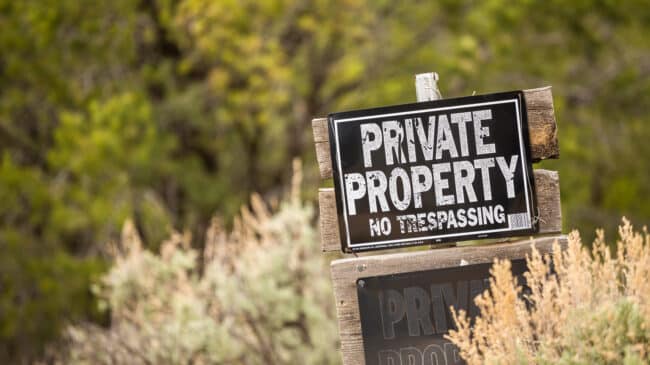2021-2133, -2220
United States Court of Appeals for the Federal Circuit
Jeffrey Memmer, Gilbert Effinger, Larry Goebel, Susan Goebel, Owen Halpeny, Joseph Jenkins,
Michael Martin, Rita Martin, Mcdonald Family Farms Of Evansville, Inc., Reibel Farms, Inc., James Schmidt, Robin Schmidt, Plaintiffs-appellants,
v.
United States, Defendant-cross-appellant.
On Appeal From The United States Court Of Federal Claims In Case No. 1:14-cv-00135-mms,
Honorable Margaret M. Sweeney, Senior Judge
Brief for National Association of Reversionary Property Owners, Cato Institute, Owners’ Counsel of
America, Southeastern Legal Foundation, Reason Foundation, and Professor James W. Ely, Jr., as Amici
Curiae In Support of Appellants Jeffrey Memmer, et al., urging denial of the United States’ petition for rehearing en banc.
Arguments
The Trails Act is a per se taking for which the government has a “categorical” obligation to pay the landowner.
A landowner’s right to compensation arises immediately when the Trails Act is invoked and does not depend upon the railroad and trail-sponsor reaching a private agreement.
Encumbering an owner’s land with a Trail Act easement is a per se taking, not a “regulatory” taking subject to Penn Central analysis.
Conclusion
In Leo Sheep Co. v. United States, the Supreme Court explained, “this Court has traditionally recognized the special need for certainty and predictability where land titles are concerned, and we are unwilling to upset settled expectations to accommodate some ill-defined power to construct public thoroughfares without compensation.” 440 U.S. 668, 687-88 (1979).
The Supreme Court reaffirmed this principle in Brandt, stating, “[w]e decline to endorse [the government’s] stark change in position, especially given ‘the special need for certainty and predictability where land titles are concerned.’” 572 U.S. at 110 (quoting Leo Sheep, 440 U.S. at 687-88).
Chief Justice Roberts, “[t]he Government loses [its] argument today, in large part because it [previously] won when it argued the opposite before this Court***.” Brandt, 572 U.S. at 102. So too here.
This Court should deny the government’s petition because the government fails to provide any reason why this Court should sit en banc to overturn thirty years of this Court’s Trails Act jurisprudence and adopt a new rule contrary to the Supreme Court’s Takings Clause jurisprudence.
